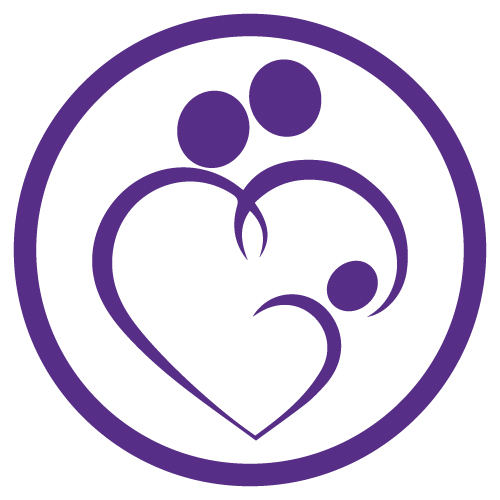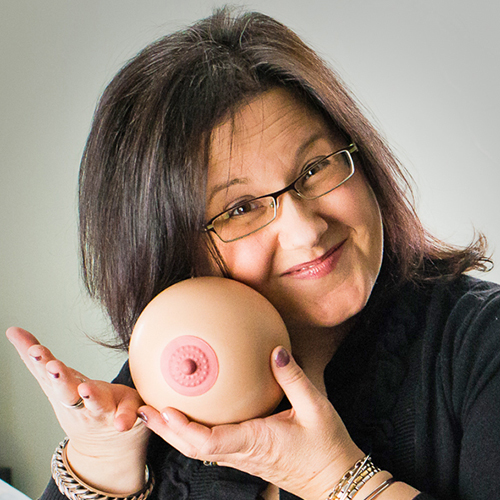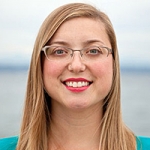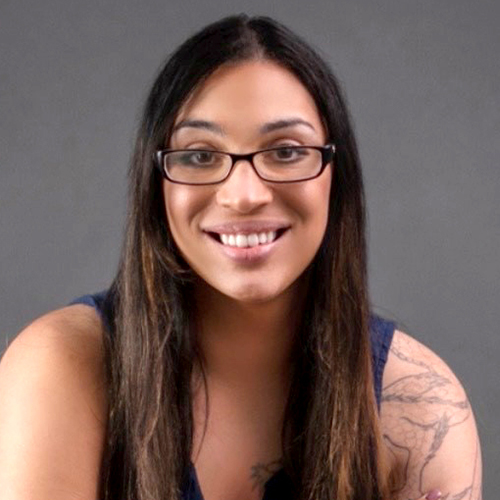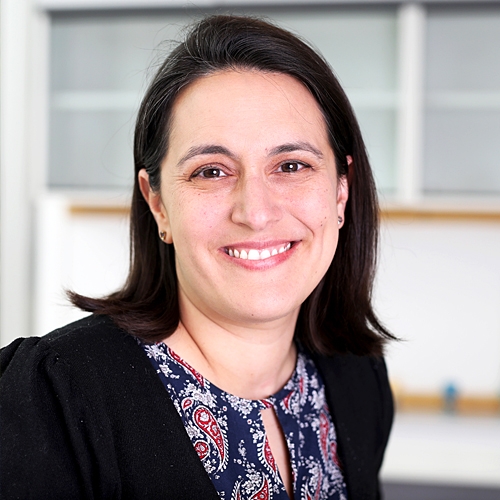 IBCLC Detailed Content Outline: Clinical Skills / Equipment and Technology Focused CERPs - Section VII A
IBCLC Detailed Content Outline: Clinical Skills / Equipment and Technology Focused CERPs - Section VII A
Access CERPs on Clinical Skills / Equipment and Technology for the IBCLC Detailed Content Outline recertification requirements. On-demand viewing of the latest Clinical Skills / Equipment and Technology focused IBCLC CERPs at your own pace.
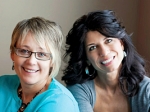
Preventing the Plunge: Why the First 2 Weeks are Crucial for Breastfeeding Duration.

Cindy Leclerc and Jana Stockham are Registered Nurses and IBCLCs with over 20 years experience helping families get started with breastfeeding. In addition to hands on care, Cindy and Jana use technology to support families through their website (cindyandjana.com), online prenatal breastfeeding classes (simplybreastfeeding.ca) and iPhone app, NuuNest. Cindy is a strong believer in mother-to-mother support, helping to facilitate breastfeeding and postpartum depression support groups. She is intrigued by all things online and actively uses social media to promote breastfeeding. Jana has been trained as a Baby Friendly assessor and helped to coordinate the first Baby Friendly designation in Saskatchewan. She has a passion to help families with new babies and facilitates a group for breastfeeding moms.
Topic: Meeting your breastfeeding goals - [View Abstract]
Topic: Preventing the Plunge: Why the First 2 Weeks are Crucial for Breastfeeding Duration. - [View Abstract]
The majority of women begin breastfeeding at birth. Within the first 6 weeks, however, breastfeeding rates fall dramatically. To help women hang in with breastfeeding beyond the first weeks, we must first understand why they struggle. Learn what the research is saying and what you can do in your practice to help women meet their breastfeeding goals. IBCLC’s who specialize in the early weeks of breastfeeding will share case examples based on over 20 years of working with breastfeeding families.

View Details / Enroll
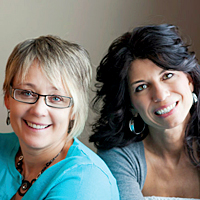
View Details / Enroll
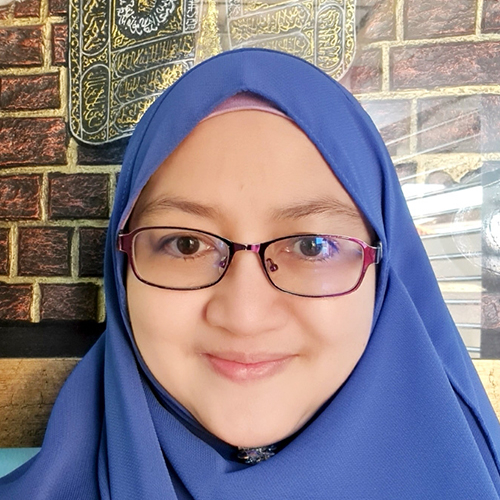
Protocol for Successful Induced Lactation and the Importance of Mahram for Muslim Families

Dr. Anisa has been working as a Consultant Pediatrician for 11 years & an IBCLC for 12 years. Dr. Anisa has a strong belief that breastfeeding saves lives of infants & young children. In order to ensure improvement of the practice of exclusive breastfeeding rate in Malaysia, she established an ambulatory care center with breastfeeding consultation services for the residents in Johor (state) & founded a networking platform for home visit counselling session by trained lactation counsellors that is BCNP (Breastfeeding Counselors Networking Program) since January 2016. Apart from above mentioned, Dr. Anisa is a mother of 4 sons with various breastfeeding experiences, blending with knowledge gained from managing cases in clinic, conferences & readings, she is confident to give lectures related to children health & lactation at national level and internationally. As fractional pediatric lecturer in Monash University Malaysia, she teaches medical students the importance and benefits of breastfeeding to our children & maternal health with hope that future young doctors will support, protect & promote breastfeeding in their services. Since 2009, Dr. Anisa has been a National BFHI Auditor, National lactation center fascilitator, trainer & speaker, and has published 2 books on breastfeeding - Induced lactation guideline & breastfeeding comic (Dr Super Pot Pet). Her deep interest in induce lactation program leads her to present this topic for GOLD Lactation.
The meaning of mahram in Islam is a person with whom marriage is not permissible (haram) and the adopted baby will be able to achieve this mahram status by breastfeeding on her/his adopted mother for at least 5 times (satisfied feeding) before 2 years old according to the Muslim calendar. Subsequently, the baby status is similar to biological child of the adopted parents. Effective consultation is required to ensure the successful process of induced lactation for the aforementioned purpose.
During consultation, breastfeeding benefits are crucial information to be explained to the adopted parents, however achieving mahram status is an additional motivational factor. According to research done by Che Abdul Rahim,N. et.al (2020) there were 6 factors that impacted successful induction of lactation: 1) appropriate protocol, 2) support system, 3) knowledge on breastfeeding technique & use of equipment, 4) time management, 5) mother's nutrition, 6) perseverance & strong motivation through follow up & additional information about expected challenges to overcome.
This presentation provides details on how to successfully induce lactation and how this knowledge can be used to support all families, including Muslim families who are breastfeeding to achieve mahram.
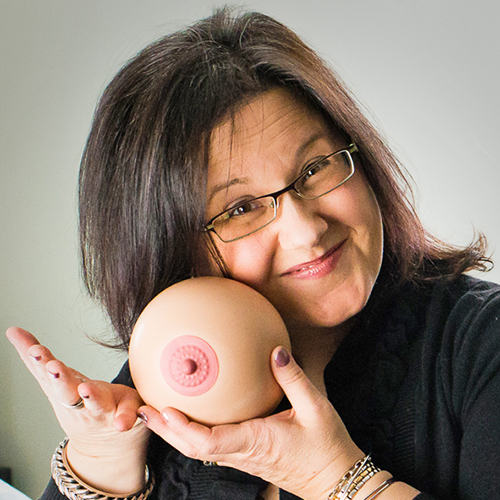
Pumping for Hospitalized Babies: 12 Keys to Supporting Families

Jeanette Mesite Frem, MHS, IBCLC, RLC, CCE is an experienced childbirth educator, IBCLC-lactation consultant and retired birth doula. She started her career working with families while serving as a Peace Corps Volunteer in Côte d'Ivoire, West Africa in the early 90s. She loved that work so much she went on to receive a public health masters degree from Johns Hopkins School of Public Health, focusing her studies on nutrition for maternal and child health. Her two children were breastfed for more than 2 years each and Jeanette has experience pumping at work for both children and has supported more than a thousand families with feeding and pumping over the last 20 years.
Jeanette provides prenatal childbirth and breastfeeding classes at her office in Northborough, Massachusetts, as well as providing virtual and office feeding consultations. She also enjoys leading workshops for perinatal health professionals and mentoring those who work with families. If you have questions, feel free to email [email protected].
Topic: Pumping for Hospitalized Babies: 12 Keys to Supporting Families - [View Abstract]
Perinatal professionals in hospitals have great influence over how much human milk a baby receives, as well as how encouraged parents feel related to pumping and initiating and maintaining their milk production and eventually meeting their infant feeding goals. When hospital staff help with pumping in the early hours, days, and weeks of a new and fragile baby’s life—especially when at breast, chest or body feeding isn’t possible—getting that professional support is likely to make a difference in the long-term health of that child as well as the health of their parent. Healthcare providers can facilitate milk collection and provision of it to babies and support parents with specific and updated guidance on pump choices, pump usage, flange fit and milk storage. Those who work in hospitals with families can make an important positive impact on long-term breastfeeding and human-milk feeding rates. This session will cover 12 simple ways (including the what, why, how, when and where of pumping) that healthcare providers can support parents who pump for their hospitalized baby.

View Details / Enroll
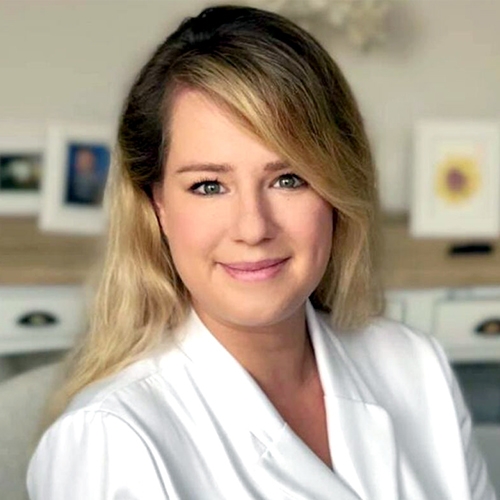

Karolina Ochoa is a Mother-Baby nurse, International Board Certified Lactation Consultant, speaker, and researcher. She has close to a decade of experience in serving breastfeeding families in both in-patient and outpatient settings. Karolina currently runs a successful Private Practice in the Inland Empire, California and she is a CEO of LactationHub.
Her areas of emphasis are clinical management of lactation, behavioral feeding aversions, as well as implementation and management of lactation programs in different healthcare settings. Karolina is passionate about addressing the inequality in access to lactation professionals across the US. She is a big advocate of extended maternity leave for all parents.
Karolina lives with her husband Julio and two lively toddlers in Redlands, CA
Pumping can be a choice or a necessity and the role of Lactation Professionals is to meet the parents where they are at. There are endless reasons for parents to use a breast pump, including prematurity, maternal-infant separation, low milk supply, return to work. Pumping can also be a choice for parents that do not wish to directly latch their baby, called Exclusive Pumping. Pumping parents deserve the same kind of evidence-based care as their exclusively breastfeeding counterparts but are often marginalized. During this workshop, you will learn how to best support a pumping parent: the importance of proper flange sizing, pumping schedules, exclusive pumping, the emotional toll of triple feeding, and how to help parents set realistic goals based on their own values.
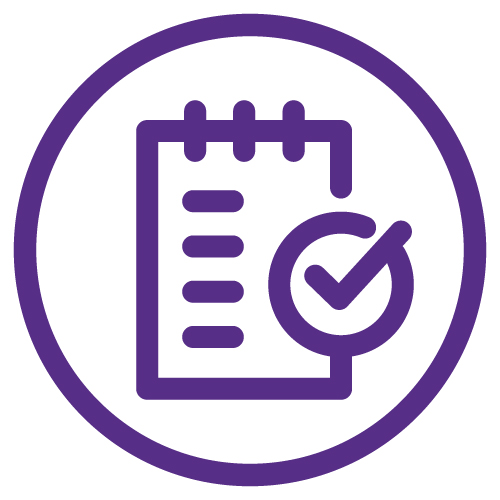
View Details / Enroll
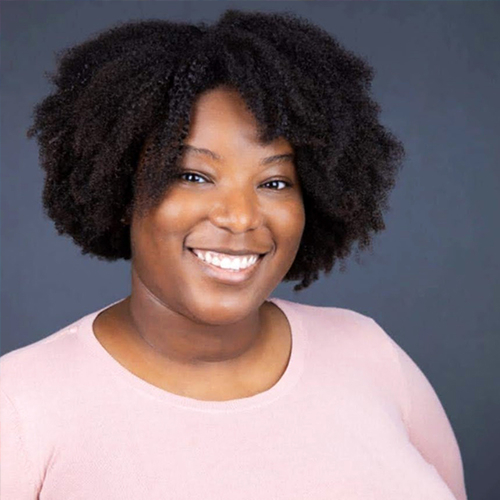
Rethinking the Definition of Breast/Chestfeeding: Where Does Pumping Fit In?

Nichelle Clark is an International Board Certified Lactation Consultant (IBCLC), wife, and mother of one residing in Chesapeake, Virginia. She is the owner of SonShine & Rainbows Lactation Services. Born and raised in Upper Marlboro, MD, Nichelle joined the United States Navy in 2010 and served honorably for 7.5 years. In 2020, she founded Black Breastfeeding 365, an organization that seeks to bridge the gap between Black Parents and the Lactation Professionals who serve them. When she’s not spending time with her husband and 4 year old son, she serves as a United States Lactation Consultant Association (USLCA) Advisory Board Member and Clinical Lactation Journal Social Media Editor. In her spare time, she admins multiple online support groups for People of Color, providing breastfeeding support and lactation education to her community. As an exclusive pumping mom herself, Nichelle is a champion for breastfeeding parents to write their own rules and breastfeed their way.
The first breast pump is credited to being invented/patented in 1854 by O. H. Needham. Since then, the pump industry has exploded, making breast pumps more accessible throughout the Western World. While technology has transitioned with the times, the bias that exists within lactation has not. Clinicians are still drawing hard lines on what the “true” definition of breast/chestfeeding is. In this presentation, we’ll dive into why there’s still a debate and answer the age-old question. Spoiler alert: Pumping is breastfeeding and lactation professionals have a responsibility to support parents to meet their pumping goals.
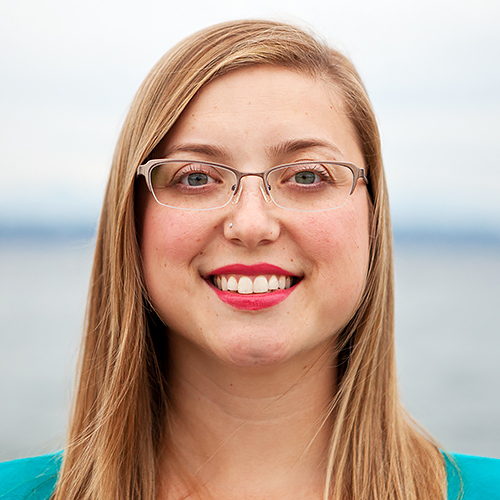

Joy MacTavish, MA, IBCLC, RLC is an International Board Certified Lactation Consultant and certified Holistic Sleep Coach focusing on the intersections of infant feeding, sleep, and family well-being. Through her business, Sound Beginnings, she provides compassionate and evidence-based support to families in the greater Seattle area, and virtually everywhere else. She entered the perinatal field in 2007 as birth and postpartum doula, and childbirth and parenting educator. Joy holds a Master of Arts in Cultural Studies, graduate certificate in Gender, Women and Sexuality Studies, and two Bachelors degrees from the University of Washington. She enjoys combining her academic background, analytical skills, and passion for social justice into her personal and professional endeavors. Joy serves as an Advisory Committee Member and guest speaker for the GOLD Lactation Academy. When not working or learning, she can be found homeschooling, building LEGO with her children, or dreaming up her next big adventure.
Topic: Full-Term Breastfeeding/Chestfeeding: Benefits, Considerations, and Ways to Offer Support - [View Abstract]
Topic: Mindful Breastfeeding: How Lactation Professionals Can Support Calm and Connection - [View Abstract]
Topic: Sending Reports: What’s in it for IBCLCs? - [View Abstract]
Topic: Supporting Clients Facing Fertility Treatment - [View Abstract]
Topic: The Intersection Between Lactation, Sleep, and Family Well-Being - [View Abstract]
Topic: Weaning: Supporting Families Stopping Lactation and/or Ending Their Breastfeeding/Chestfeeding Relationship - [View Abstract]
Most lactation professionals love client interactions, but only send reports to health care providers out of a sense of duty. But writing and sending reports to our client’s health care providers can be more just an administrative task. Yes, it complies with IBLCE’s Code of Ethics to “Principle 4: Report accurately and completely to other members of the healthcare team” but it can also increase collaboration, improve client outcomes, and grow your practice.
This presentation seeks to reframe the process of writing and sending reports from a dreaded task to a clinical, ethical, and holistic way of supporting our clients while positively positioning ourselves as allied health professionals. Beyond the ethics (yes or no) and practicalities ("S.O.A.P." or not), a report to a health care provider is a source of communication about the consultation as well as marketing about your clinical skill, role in the client’s lactation experience, and lactation practice. With a combination of the why and how, this presentation outlines the ways in which reports to health care providers can be beneficial to the client, the health care provider, and the IBCLC, as well as devoting some time to specific strategies that lactation consultants can implement to streamline the process of sending reports so that we can get to the next client.

View Details / Enroll
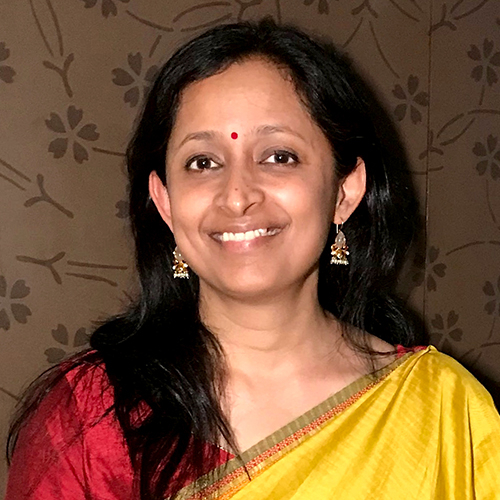
Skilled Lactation Support in Suboptimal and Low Resource Settings: Onsite Mentoring as a Game Changer

As a Pediatrician and an IBCLC, Shacchee is attracted to ways of promoting health and well-being for families. She transitioned to lactation support 14 years ago after her first daughter was born, realising the felt need for skilled Lactation Support in her community.
She works at a tertiary care hospital in New Delhi, India, and heads a Lactation team, supporting families in their antenatal, intra-natal and postnatal periods. She also trains medical and paramedical staff in skilled lactation support.
She is the current President and Executive Team member of ALPI (Association of Lactation Professionals India). She works as a clinical instructor, helping train future lactation professionals in various aspects of Skills, Ethics, Scope of Practise and Communication.
She co-ordinates between Public and Private healthcare bodies to provide equitable lactation support across her community.
She is an advocate of teamwork in supporting dyads with special lactation challenges (oral restrictions/ NICU babies etc) and has been working to bring experts from different fields together for comprehensive lactation support.
Working with different teams locally and nationally allowed her to achieve the goal of making, "skilled lactation support a reality in India."
Married to Vipul, they have two super girls Navya (14) and Ayana(11).
We have protocols and optimal models of care for lactation specific challenges. Does this mean we cannot provide optimum support in resource limited settings or less than ideal settings?
Skilled lactation support can mean different things in different settings. To serve a community, its crucial to understand the particular needs of the community and to be able to cater to them in a culturally acceptable and feasible way without compromising on the quality of lactation care, more so in resource limited settings.
India has a huge population of families in need of lactation support and we also have scarcity of skilled and trained lactation support people. We are such a diverse country that our customs, language, socioeconomic milieu (and thus the challenges) change every few Kilometres.
This presentation talks about the various means with which we were able to improve the availability Skilled Lactation Support in the community, especially utilising our most plentiful resource, our community, with online and onsite mentoring....i.e. skilled lactation support to the community by their own community.

View Details / Enroll
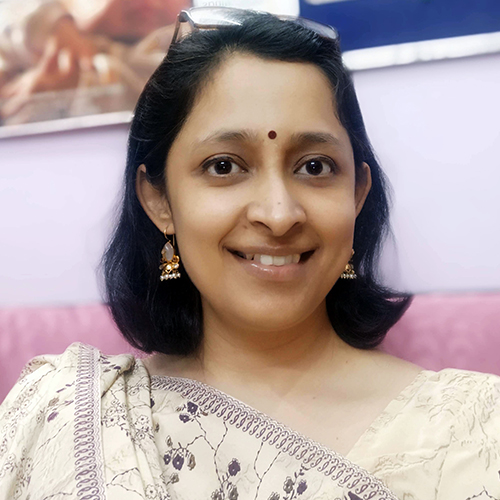
View Details / Enroll
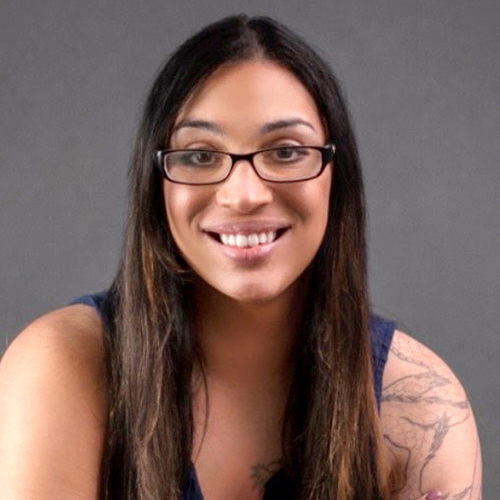

Shondra Mattos is an IBCLC, Entrepreneur & Speaker who delivers progressive, up-to-date lectures that challenge the current standard of Lactation Care. She is widely regarded as the go-to source for those looking for clear, understandable clinical knowledge.
In 2018, Shondra rebranded her lactation practice Mattos Lactation and provided location-independent lactation support to families across the country. In 2020 she founded Lactnerd LLC with the focus of helping healthcare providers gain knowledge while conquering the intimidation of learning the complex science of Lactation.
Through her companies- Lactnerd & Mattos Lactation - she provides tools, resources, education & mentoring to aspiring and established lactation professionals across the USA.
This presentation will cover skills & strategies of conducting assessments of oral dysfunction in a telehealth setting, a situation many Lactation providers were thrusted into due to Covid-19. Through real life examples of processes & strategies I use in my location-independent practice which specializes in oral dysfunction, the learner will gain practical insight to improve the quality of the virtual lactation visits they provide.
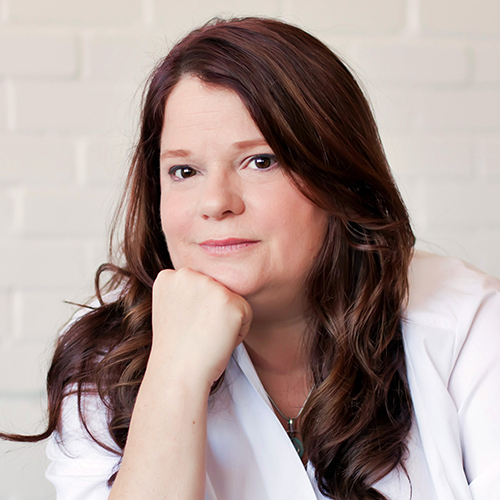

Barbara D. Robertson, IBCLC, has been involved in education for over 34 years. She received a Bachelor’s degree in Elementary Education in 1988 and her Master’s in Education in 1995. Barbara left teaching elementary students in 1995 to raise her two children. Barbara is now the Director of The Breastfeeding Center of Ann Arbor and of the brand new business LactaLearning.
The Breastfeeding Center of Ann Arbor will still continue to serve breast/chestfeeding families and now LactaLearning will be dedicated to all of Barbara’s professional lactation trainings. Barbara has developed two 95 hour professional lactation training, a group training and a completely self study training with Nancy Mohrbacher. Barbara’s idea of creating professional book groups has exploded with her hosting Making More Milk with Lisa Marasco, Supporting Sucking Skills with Cathy Watson Genna, Breastfeeding Answers, 2nd Edition with Nancy Mohrbacher, and new for the fall, Safe Infant Sleep with Dr. James McKenna. Barbara will be hosting a one day online conference in the fall with Lisa Marasco and Cathy Watson Genna using all of her tech savvy skills to make this a one of a kind experience. Barbara is also a speaker for hire on a wide variety of topics including Motivational Interviewing. Barbara volunteered for the United States Lactation Consultation Association as the Director of Professional Development for 4.5 years.
She just retired as Associate Editor for Clinical Lactation, a journal she helped create for USLCA. Barbara has free podcasts, a blog, and Youtube videos which can all be found on her websites lactalearning.com and bfcaa.com. She has written many articles as well. She loves working with parents and babies, helping them with breast/chestfeeding problems in whatever way she can.
Topic: Breastfeeding: Baby’s First Milestone - [View Abstract]
Topic: Clinical Assessment and Management of Low Milk Production - [View Abstract]
Topic: Deconstructing Online Messaging: Ethical Considerations - [View Abstract]
Topic: Milk Sharing and Milk Banking: Building Knowledge for Better Outcomes - [View Abstract]
Topic: The Baby's Not Gaining Weight! Now What? - [View Abstract]
Topic: The Great Nipple Shield Debate - [View Abstract]
Helping families determine if an infant is gaining weight appropriately in the first months after birth is an important part of a lactation consultants work. Being able to assess for the signs of a healthy, well-fed infant is critical to this work. If an infant is not gaining appropriately, calculating how much extra food the infant needs to grow properly, what this infant will be fed, identifying why this is happening, and providing possible solutions allows families to work on preserving breastfeeding while improving the breastfeeding relationship.

View Details / Enroll
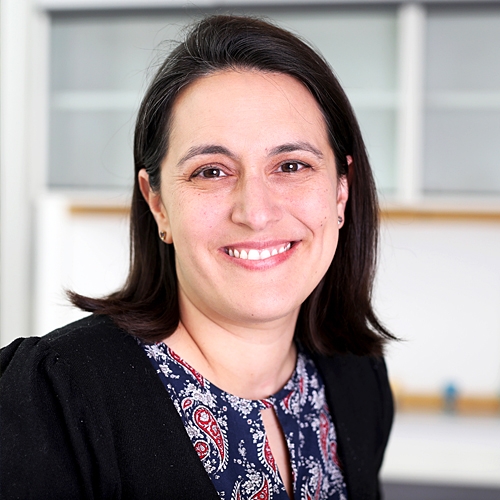

Dr Natalie Shenker is a former surgeon, scientist, and the cofounder of the Human Milk Foundation, which aims to ensure more babies are fed with human milk. As well as supporting a range of educational and research studies, the HMF aims to ensure assured access to screened donor milk through a network of human milk banks based on the cost-effective innovative model of the Hearts Milk Bank (HMB). Milk banks provide screened breastmilk to premature babies whose own mothers need time to establish breastfeeding, protecting them from a range of life-threatening complications and supporting the mother to breastfeed. The HMB has been operating in the UK for 18 months, and has supported neonatal units as well as families in the community where breastfeeding is impossible or taking time to establish.
Evolution has created human milk as a way to protect the baby postnatally, patterning the immune system and microbiome, and providing diverse developmental cues for each organ system to develop normally. Milk also provides nutrition. When screened donated human milk (DHM) is available, mothers facing the most stressful circumstances of having an ill premature baby tend to have high chances of establishing breastfeeding. If donor milk is used appropriately as a bridge to lactation, they are less likely to perceive that their bodies have failed. The work of the Hearts Milk Bank over 18 months have laid the foundation for a UK-centred drive to upscale milk bank capacity, facilitate research to determine the optimal use of donor milk, and support a shift in perception about the role of human milk, underpinned by the latest science.

View Details / Enroll




